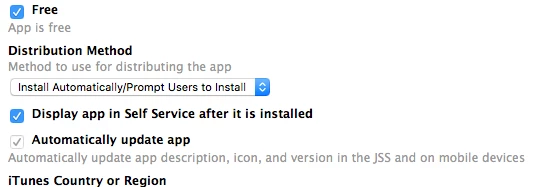Hey all,
Here's the scoop:
In our K-12 environment, we are required to participate in regulated state-wide testing. Unfortunately, the developer of the testing app is some 3rd party company which releases updates once, maybe twice a year, on a different schedule than Apple of course. They have finally stated that the testing app is compatible with 10.2, however, upon arriving on campus today- we found an update pending to 10.2.1
Testing is to begin very soon and I need to BLOCK THESE UPDATES!! We currently have appldnld.com and mesu.apple.com blocked in our filter, however, it isn't stopping access. What else can be done? Are there other servers that need to be blocked?
Please keep in mind this is NOT a discussion about Apple's practices or method of updating. In our specific environment we need to prevent updates until after testing season. (3-4 months/yr)
Is anyone else having success in stopping updates? I can only seem to find info about blocking the aforementioned servers...
Thanks in advance!!












